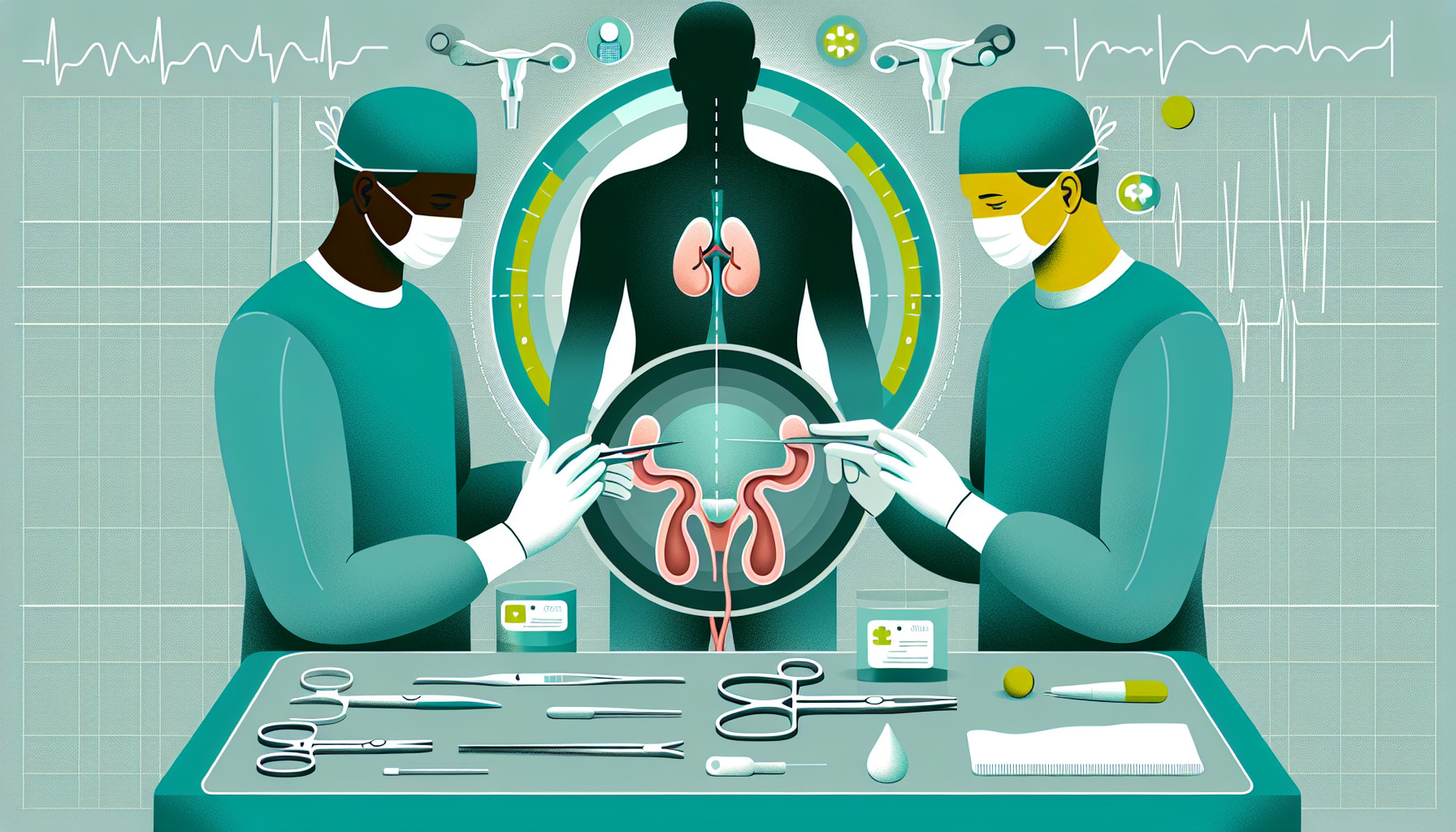Our Summary
The researchers wanted to understand if obesity affected the cost of a specific surgery, radical cystectomy (a procedure to remove the bladder), in the United States. They looked at data from over 1,000 patients who had this surgery between 2003 and 2015. They found that the cost of the surgery was higher for obese and morbidly obese patients compared to those who were only overweight. This increased cost seemed to be due to the surgery taking longer and the patients needing to stay in the hospital for more days. Each extra day in the hospital increased the cost by around $1,738. In simple terms, being overweight or obese can make this type of surgery more expensive and time-consuming.
FAQs
- What was the objective of the research conducted on the cost of radical cystectomy surgery?
- How does obesity affect the cost and duration of a radical cystectomy surgery based on the research findings?
- What was the estimated extra cost per day for hospital stay after radical cystectomy surgery according to the study?
Doctor’s Tip
A doctor might tell a patient undergoing a cystectomy to maintain a healthy weight before and after surgery to potentially reduce complications, shorten recovery time, and lower overall costs. It is important to follow a balanced diet and exercise regularly to achieve and maintain a healthy weight. Additionally, quitting smoking and avoiding alcohol can also help improve surgical outcomes.
Suitable For
Patients who are typically recommended cystectomy include those with bladder cancer that has not responded to other treatments, such as chemotherapy or radiation therapy. Additionally, patients with advanced stages of bladder cancer or those who have recurrent bladder cancer may also be recommended for cystectomy. Other conditions that may warrant a cystectomy include muscle-invasive bladder cancer, non-muscle-invasive bladder cancer that has a high risk of progressing, or certain types of bladder cancer that are not responsive to other treatments.
Timeline
- Before cystectomy:
- Patient is diagnosed with bladder cancer
- Patient undergoes various tests and consultations to determine the need for cystectomy
- Patient may undergo chemotherapy or radiation therapy prior to surgery
- Patient prepares for surgery by following pre-operative instructions from healthcare providers
- After cystectomy:
- Patient undergoes the surgical removal of the bladder
- Patient may require a temporary or permanent urinary diversion (such as an ileal conduit or neobladder)
- Patient stays in the hospital for a period of time to recover from surgery
- Patient may experience side effects such as pain, fatigue, and changes in urinary function
- Patient undergoes post-operative follow-up appointments and may require additional treatment or rehabilitation
Overall, the patient goes through a significant physical and emotional journey before and after cystectomy, with the goal of treating their bladder cancer and improving their quality of life.
What to Ask Your Doctor
- What are the potential risks and complications associated with cystectomy?
- How long is the recovery period after cystectomy?
- Will I need any additional treatments or therapies after the surgery?
- What lifestyle changes should I make before and after the surgery to improve my outcome?
- How will my bladder function be affected after the surgery, and what can I expect in terms of urinary function?
- Are there any alternative treatments or procedures that could be considered instead of cystectomy?
- How many cystectomy procedures have you performed, and what is your success rate?
- Will I need to make any dietary changes or restrictions after the surgery?
- How will my overall quality of life be affected after the surgery?
- What support services are available for patients undergoing cystectomy, such as counseling or support groups?
Reference
Authors: Huynh MJ, Wang Y, Chang SL, Tully KH, Chung BI, Wright JL, Mossanen M. Journal: Urol Oncol. 2020 Dec;38(12):932.e9-932.e14. doi: 10.1016/j.urolonc.2020.05.014. Epub 2020 Jul 1. PMID: 32620482
